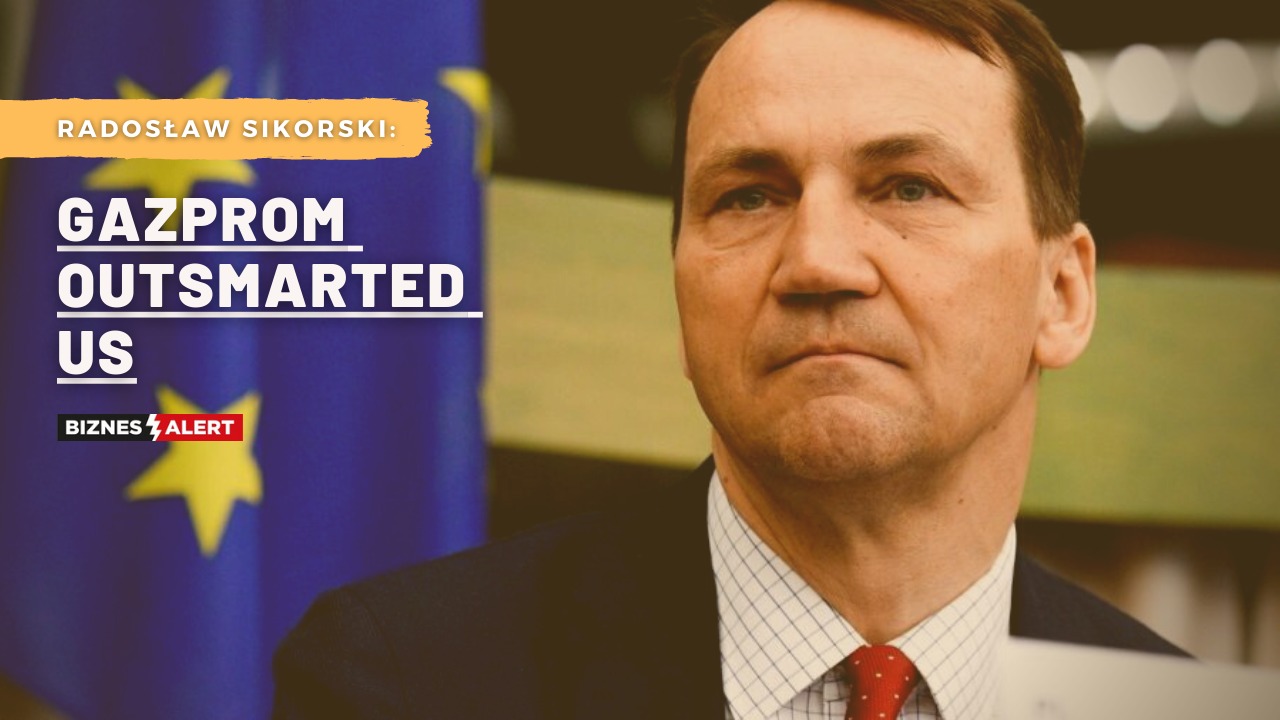„It seems that Gazprom easily outsmarted our PGNiG, and Polish businesses and Polish consumers are paying the price,” says Radosław Sikorski from the Civic Coalition in an interview with BiznesAlert.pl.
BiznesAlert.pl: Should we expect a military offensive against Ukraine? Is the build-up of troops on the border more about threats, or is Russia actually going to attack?
Radosław Sikorski: No one knows this except for Vladimir Putin, and maybe even he himself has not yet decided. From all accounts, almost all preparations for a military operation have been made: a concentration of troops preceded by a general rehearsal in the spring, a cyber attack, two failed provocations to have an excuse for an invasion. First minister Shoygu said something about American chemical weapons in Donbas, and then Americans warned the world against a provocation by unknown perpetrators, perhaps undermining the plans of Vladimir Putin, who lost the advantage of surprise. On the other hand, it looks like the state media are not preparing the Russian people for a war, but this may also be the result of a calculation, where a Russian version of Gliwice (a false flag operation conducted by Nazi Germany in the town of Gliwice to have a pretext to attack Poland in 1939 – ed.), could be the right excuse to say „well, we did not want to attack Ukraine, but now we have to.” We should not rule out an aggression, but the military men I talk to claim that 130, or even 150 thousand troops on the border would not be enough to conquer entire Ukraine.
In that case, could the energy noose, that President Volodymyr Zelensky is talking about, be used as a tool without declaring war?
We warned our German allies that the only goal of Nord Stream and Nord Stream 2 is precisely this, that is, to deprive Ukraine of transmission revenues and the possibility of supplying gas to customers in Western Europe, while turning down the transmission via Yamal and Druzhba for customers in Central Europe.
Is the West responding adequately to this threat and the energy crisis? Does it see eye to eye on this issue?
Germany, of course, is key here. The Greens, before entering the government, had criticized Nord Stream 2, but it looks like it has been explained to them that the economic interests of the German industry are more important than the strategic interests of the entire European Union, and in particular the eastern flank. The German government seems to be divided on this issue.
Meanwhile, the Russian Kommersant daily suggests that Gazprom should continue reducing the gas supply to Europe, because it will sell more gas, sign new long-term contracts. What should European countries, including Poland whose long term contract with Russia will soon expire, do?
For some time now I have supported not just the energy union, but even a gas union. The Russians are trying to dictate prices to different countries from the position of a quasi-monopolist, and we are the largest consumer of Russian gas. I do not consider myself an expert in this field, but I know that another energy resource, namely uranium, is bought by the European Commission on behalf of all the member states, and then distributed as needed to the member states, so that we have energy security, that is, security of supply at a competitive price. If we did the same thing with gas, we’d have safer and cheaper supply.
In the context of what is happening, should Poland sign a new contract with Russia and abandon the path of diversification, which seems more expensive during the energy crisis, or continue the course?
We have given the current government a wonderful tool with great effort. During our two terms in office, we built an LNG gas terminal in Świnoujście, and the Law and Justice government nailed a plaque to it with the name of Lech Kaczyński, but it was built from the first shovel to the last hammer by the Civic Platform-Polish People’s Party ruling coalition. We built the terminal to sign another contract with Russians without any blackmail, because we would be able to diversify supply. We wanted the prices in the long-term contracts to be lower, but it seems that our colleagues from Law and Justice went to the casino and decided to speculate on the price of gas. Not just the spot transactions, where it looks like they failed, because they bet on prices going down and instead they skyrocketed. I am talking about the fact that they changed the pricing formula as if spot prices were always going to be lower, and yet this was not guaranteed in the markets. Prime Minister Waldemar Pawlak, who follows these matters more closely than I do, claims that in 18 months we have already lost PLN 16 billion, or USD 4 billion, on changing this price formula. This is a gift that PGNiG and the government gave to Vladimir Putin.
What do we do then?
I was a minister of foreign affairs, not energy or industry. I understand that we have enough domestic production to meet the demands of Polish households, so we import gas for the industry, mostly heavy industry, I think five major fertilizer factories. I still believe that gas molecules do not have sickles and hammers on their atoms, it is necessary to buy gas on the most favorable terms. However, the Law and Justice government is incapable of doing this, because when you appoint – be it at a horse stable, or at state-owned companies – people whose credentials are based on loyalty to their party, these are the results that you get. It seems that Gazprom easily outsmarted our PGNiG, and Polish businesses and Polish consumers are paying the price.
Interview by Wojciech Jakóbik









